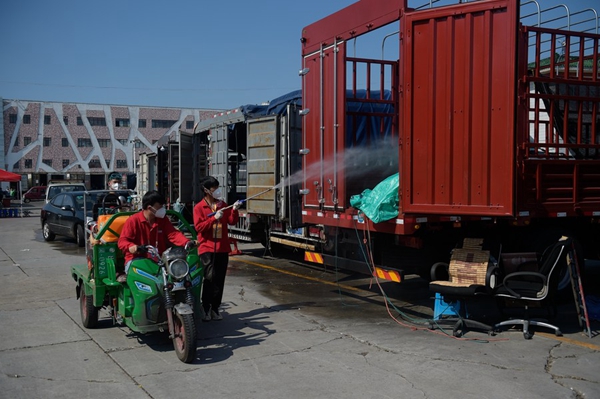Beijing's Xinfadi market suspends sale of frozen, aquatic products
 0 Comment(s)
0 Comment(s) Print
Print E-mail Xinhua, November 26, 2020
E-mail Xinhua, November 26, 2020

The Xinfadi wholesale market in Beijing, which was previously hit by COVID-19, has suspended the storage and sale of frozen and aquatic products, the market said Wednesday.
The move follows reports of COVID-19 infections related to imported frozen products in multiple Chinese provinces and municipalities in recent months.
All frozen and aquatic products have been removed from the market's refrigerated warehouses, which have had their electricity supplies cut and undergone disinfection, according to the market.
The measures will not affect Xinfadi's fresh pork trade, and market authorities have registered and conducted checks on all the warehouses and cold-storage facilities for fruits and vegetables.
Xinfadi market is Beijing's largest vegetable wholesale market. It was temporarily shut down due to a resurgence of the COVID-19 epidemic in June. The vegetable wholesale area reopened on Sept. 6, marking the full resumption of business at the market in the wake of the closure.
The market provided about 70 percent of Beijing's vegetables, 10 percent of its pork and 3 percent of its beef and mutton before being shut down on June 13. Starting on June 11, Beijing reported 335 confirmed COVID-19 cases linked to a cluster from the Xinfadi wholesale market.
The Chinese mainland on Tuesday reported no new locally transmitted COVID-19 cases, the National Health Commission said Wednesday.






Go to Forum >>0 Comment(s)